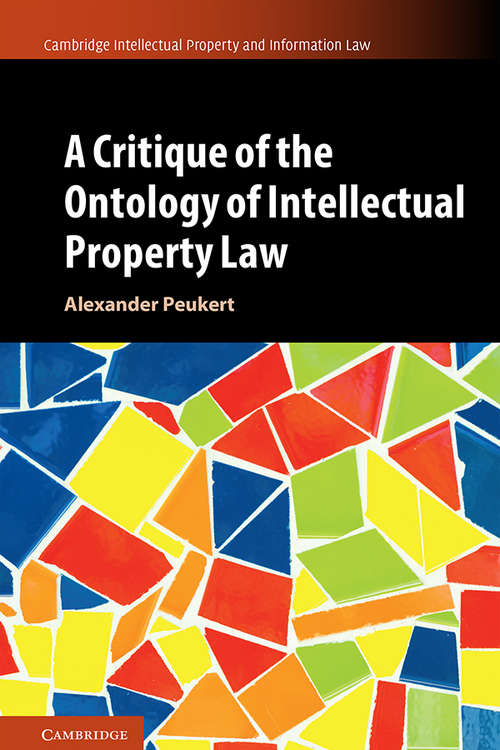A Critique of the Ontology of Intellectual Property Law (Cambridge Intellectual Property and Information Law #57)
By:
Sign Up Now!
Already a Member? Log In
You must be logged into Bookshare to access this title.
Learn about membership options,
or view our freely available titles.
- Synopsis
- Intellectual property (IP) law operates with the ontological assumption that immaterial goods such as works, inventions, and designs exist, and that these abstract types can be owned like a piece of land. Alexander Peukert provides a comprehensive critique of this paradigm, showing that the abstract IP object is a speech-based construct, which first crystalised in the eighteenth century. He highlights the theoretical flaws of metaphysical object ontology and introduces John Searle's social ontology as a more plausible approach to the subject matter of IP. On this basis, he proposes an IP theory under which IP rights provide their holders with an exclusive privilege to use reproducible 'Master Artefacts.' Such a legal-realist IP theory, Peukert argues, is both descriptively and prescriptively superior to the prevailing paradigm of the abstract IP object. This work was originally published in German and was translated by Gill Mertens.
- Copyright:
- 2021
Book Details
- Book Quality:
- Publisher Quality
- ISBN-13:
- 9781108750431
- Related ISBNs:
- 9781108498326
- Publisher:
- Cambridge University Press
- Date of Addition:
- 05/20/21
- Copyrighted By:
- Gill Mertens
- Adult content:
- No
- Language:
- English
- Has Image Descriptions:
- No
- Categories:
- Nonfiction, Law, Legal Issues and Ethics
- Submitted By:
- Bookshare Staff
- Usage Restrictions:
- This is a copyrighted book.
- Translator:
- Gill Mertens
